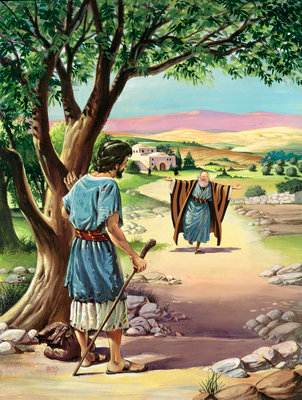Daily Lesson for Sunday 12th of January 2025
As we saw in an earlier lesson, there is no one—even the worst sinner or worst evildoer—whom God does not love. And because God values people more than we could possibly imagine, He is displeased by sin because He loves us and knows what sin does to us, as well.
Read Luke 15:11-32. What does the parable of the prodigal son reveal about God’s compassion and love? What warning does it provide for those who, like the other son, remained home?
In this story that Jesus tells, the man’s son requested his inheritance early, effectively rejecting his father and his father’s household. The prodigal son then goes on to squander his inheritance and is reduced to poverty and hunger, envying pigs that eat from a trough. Realizing that the servants in his father’s house have more than enough food, he decides to return home in hopes of becoming a servant.
What follows is powerful. Some fathers would turn such a son away upon his return. “You took your inheritance and cut yourself off from my house. You no longer have a home here.” That would be a logical, even reasonable, attitude, would it not? In the eyes of some human parents, the son had gone too far to be accepted back home, especially as a son.
But, in the parable, the father (representing God Himself) does not respond in any of these ways. Rather, “ ‘when [the prodigal son] was still a great way off, his father saw him and had compassion, and ran and fell on his neck and kissed him’ ” (Luke 15:20, NKJV). Even though it was considered less than dignified in such times for the master of the house to run out to meet someone, the father in his great compassion ran out to meet his son and, more astonishingly, restored him to his household, even throwing a celebration in his behalf, signifying the great compassion of God for each wayward person and the delight He takes in even a single person returning home. What a picture of God!
|
Interesting is the reaction of the other son. Why was this reaction such a human reaction, based at least in part on fairness, and so understandable, as well? What, however, does his part of the story teach us about how human concepts of fairness don’t capture the depth of the gospel or of God’s love for us? |
 (0)
(0)Source: https://ssnet.org/blog/25a-03-more-valuable-than-you-can-imagine/




